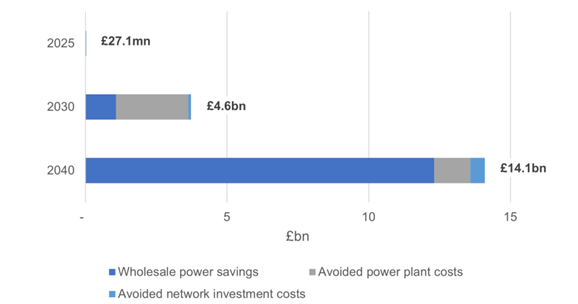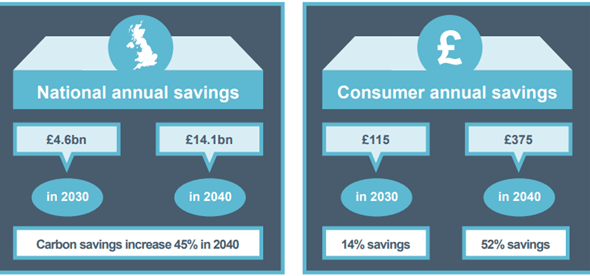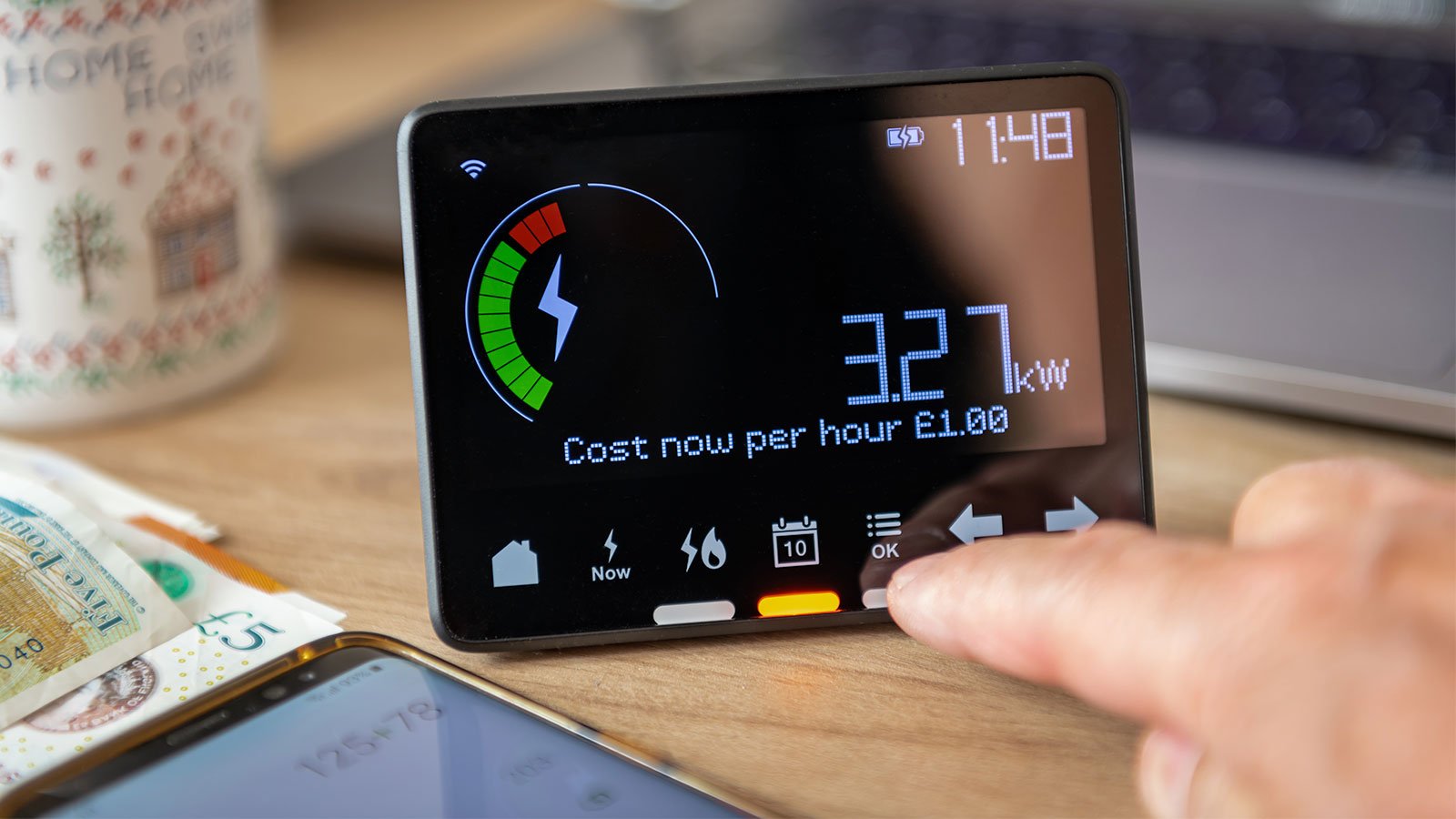Households adopting a more flexible approach to their energy use could help cut national wholesale and system electricity costs by an estimated £14.1 billion a year by 2040.
That’s according to new research from Cornwall Insight and Smart Energy GB, which revealed the cost-saving potential of flexible electricity initiatives, such as time-of-use tariffs, smart meters, solar PV, and home energy storage.
The data reveals national wholesale and system electricity costs could be cut by an annual £4.6bn in 2030 and £14.1 billion in 2040 if flexible energy solutions are implemented. Households that participate in flexible electricity initiatives also stand to cut wholesale electricity costs by more than 14% in 2030 and a staggering 52% in 2040 – a predicted annual saving of £115 and £375 respectively for an average household.
National Grid ESO has already been trialling new schemes that encourage more flexible energy usage, such as the Demand Flexibility Service. This scheme was trialled during the 2022/23 winter period, and saw households cut their electricity usage during times of lower generation to help lower the demand on the system. The scheme was heralded a success, as it delivered 3,300MWh in electricity reductions at peak times across the 22 events.

With schemes such as the Demand Flexibility Service and time-of-use tariffs, such as Octopus Energy’s Agile tariff, which changes the price of electricity every half hour to reflect the wholesale rates, it’s clear to see why costs could come down in the future.
Typically, in Great Britain, daily peaks in electricity demand occur on weekdays between 4pm and 7pm. To meet peak demand, additional fossil fuel-generated electricity is often required. As these sources are more expensive than renewable options such as wind and solar, this drives up wholesale electricity costs and ultimately impacts consumer bills. With the anticipated increase in electricity demand over the next few years, this issue is poised to become even more acute.
Encouraging consumers to modify their electricity usage according to the availability or price of electricity, by, for example, installing smart meters so they can access time-of-use tariffs, and participate in trials like the Demand Flexibility Scheme will boost off-peak energy usage, saving money and taking pressure off the grid.
Additionally, the report calculates that customers who adopt self-generation and energy storage for use during high-cost periods, stand to save hundreds of pounds from their annual energy bills. Even households that do not actively participate in household flexibility will see an overall reduction in their electricity bill as a result of a more efficient system.
The benefits would also be felt on a national scale; with the modelling showing that by embracing flexible electricity usage the UK could avoid the need to construct the equivalent of four additional gas-fired power stations in 2030. This not only translates to cost-savings of over £2.5 billion but also provides significant environmental benefits for our communities. It would also reduce the need for upgrades to the electricity wires and infrastructure, which saves almost £1 billion in 2030.

Anna Moss, Senior Consultant at Cornwall Insight, noted, “Our analysis has unveiled the immense potential of flexible household electricity use to support GB as it journeys towards a renewables-based system. By empowering consumers to become the architects of their own energy usage as well as supporting home decarbonisation technologies across the consumer base, the government can reduce expenses, alleviate strain on the grid, and even eliminate the need for additional costly gas-fired power stations.
“This is a defining moment in our energy journey. Britain is moving along the path to a more electrified future, where household engagement with flexibility will enable us to reach net zero at lower cost, allowing consumers to realise the financial benefits associated. Smart meters play a pivotal role in this transition, providing crucial data and insights that empower consumers to optimise their energy use.
“By embracing household flexibility, we not only revolutionise our electricity landscape but also rejuvenate our commitment to a greener, more sustainable future.”
Sara Higham, Director at Smart Energy GB, added, “The debate on how we can meet the country’s growing demands for electricity often focuses on how we create more national infrastructure to generate more energy to meet demand, but this report clearly shows that there is another side to this debate: enabling and incentivising consumers to use the energy we generate in a more flexible way.
“This report clearly demonstrates the benefits of flexible energy use and the pivotal role played by smart meters in creating a flexible energy system. More than half of GB households now have a smart meter and the benefits to individuals and the country as a whole will only increase as installations continue.”

